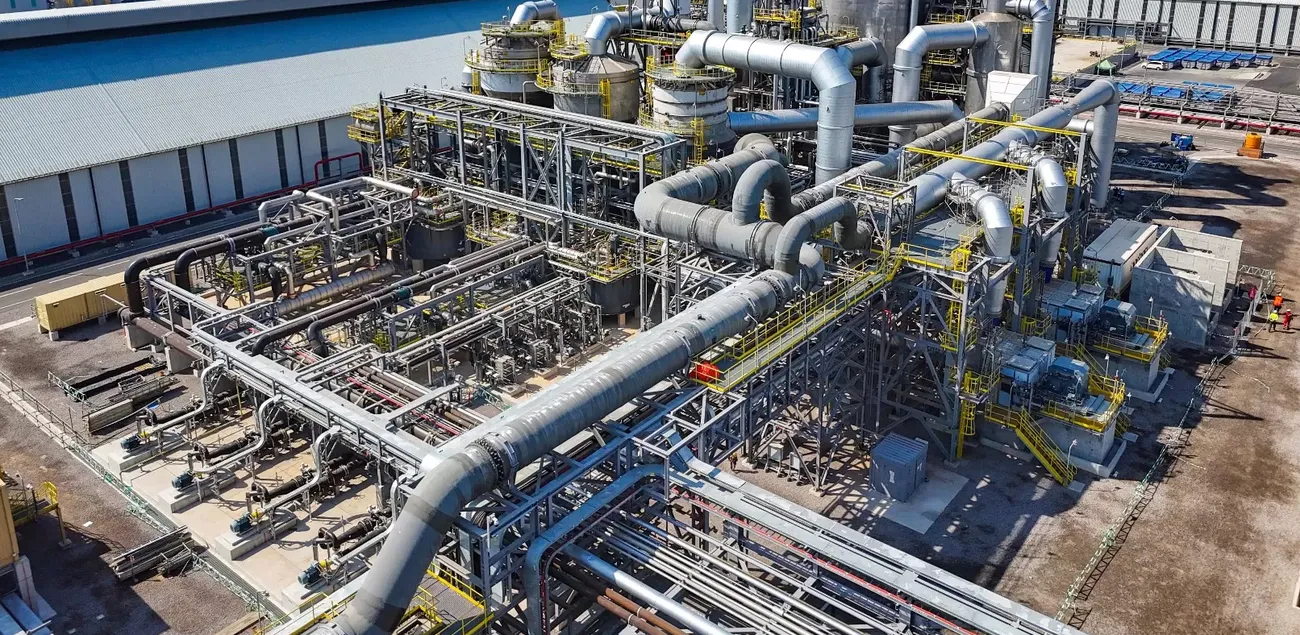
The Indonesian government is launching a new drive to attract investment into its downstream copper sector, aiming to transform the nation from a primary processor into a manufacturer of high-value, secondary products for the global electronics and electric vehicle industries. An official from the Ministry of Investment and Downstreaming confirmed that the government is preparing a suite of fiscal incentives, including tax holidays and allowances, to build a domestic industry for advanced derivatives like copper foil and copper slabs, moving beyond the current focus on producing copper cathodes.
A Strategy to Capture More Value
Indonesia’s current copper industry is largely concentrated in “tier one” processing, which involves smelting mined concentrate into refined metal. However, this initial step captures only a fraction of the potential value. Rizwan Aryadi Ramdhan, the ministry’s director of mineral and coal downstreaming, stated the government’s clear intent to advance further. “That’s what we want to pursue. We aim to produce the next tier of derivatives, which few business actors are currently manufacturing,” he said.
This policy is part of a broader national strategy to maximize the economic benefits from Indonesia’s substantial mineral wealth. The country holds approximately 3% of the world’s copper reserves, ranking it among the top ten globally.
The Gresik Smelter: A Cornerstone Project
The government’s downstream ambition is anchored by the new large-scale processing infrastructure coming online. PT Freeport Indonesia recently completed construction of its $3.7 billion copper smelter in Gresik, East Java, which was officially launched in June 2024. Described as the world’s largest single-line smelter, the facility is designed to process 1.7 million metric tonnes of copper concentrate annually, producing approximately 650,000 tonnes of copper cathodes.
When combined with the existing PT Smelting facility, Indonesia’s total domestic concentrate processing capacity will reach 3 million tonnes per year. This critical mass of locally refined copper cathode is intended to provide the necessary feedstock for a new wave of secondary manufacturing, eliminating the need for domestic industries to import the raw material and creating a foundation for a robust industrial ecosystem.
Targeting High-Growth Technology Markets
The government’s focus is on specific high-value products with direct applications in rapidly growing global sectors.
- Copper Foil is an essential material in modern electronics. It is used to create the conductive pathways on printed circuit boards (PCBs), the foundation of nearly all electronic devices. Critically, it also serves as the anode current collector in lithium-ion batteries, making it an indispensable component for the electric vehicle (EV) supply chain.
- Copper Slabs and Plates are intermediate products that are rolled and drawn into wires, tubes, and sheets. These are vital for electrical equipment, heat exchangers in HVAC systems, and construction.
By fostering domestic production of these items, Indonesia aims to supply its own growing automotive and electronics sectors while becoming a key exporter of finished goods instead of intermediate materials.
Attracting Investment and Market Context
To de-risk investment in this capital-intensive sector, the Ministry of Investment is offering a package of fiscal incentives alongside a concerted overseas promotion campaign.
The push comes as the global copper market is well-supplied. The International Copper Study Group has forecast a market surplus for 2025, driven by new mine and smelter capacity coming online globally. While long-term demand is expected to be strong due to the green energy transition, Indonesia’s new manufacturing capacity will enter a competitive international market.
Copper Market Overview
Copper is a vital industrial metal, often considered a barometer of global economic health due to its widespread use in construction, electronics, and industrial machinery. In 2025, prices on the London Metal Exchange have experienced volatility, influenced by macroeconomic uncertainty and a market that is currently assessed as well-supplied. Despite this short-term balance, the long-term outlook for copper demand is robust, driven overwhelmingly by the global green energy transition. Electric vehicles, renewable energy generation, and upgrades to electrical grids are all significantly more copper-intensive than their fossil-fuel-based counterparts, positioning copper as a critical metal for decarbonization. Indonesia’s strategic push into high-value downstream products is a calculated effort to position itself as a key supplier for this anticipated structural demand boom.
Company Background
The Indonesian Ministry of Investment, also known as BKPM, is the central government agency responsible for implementing investment policies and promoting a favorable business climate to attract both foreign and domestic capital. Its downstreaming policy for strategic minerals like nickel and copper is a cornerstone of the country’s economic development plan.
PT Freeport Indonesia, a subsidiary of the US-based mining company Freeport-McMoRan, operates the giant Grasberg copper and gold mine in Papua. The Indonesian government holds a majority 51% ownership stake in the company. The construction of the Gresik smelter was a key condition for the extension of Freeport’s mining license and is central to the nation’s industrial strategy to add value to its mineral resources.



